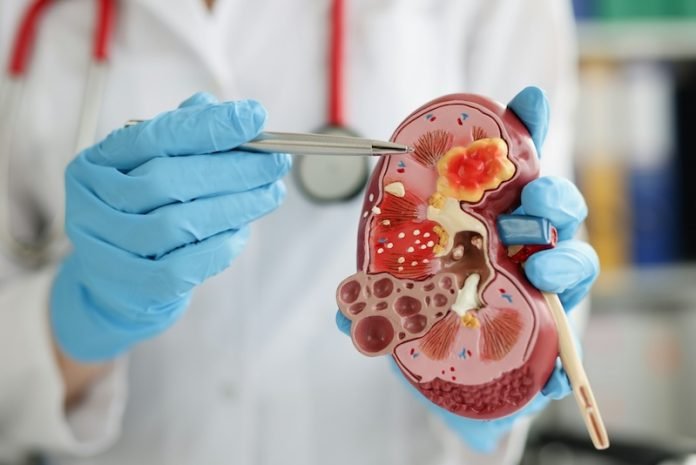
The kidneys are vital organs in the body, responsible for filtering waste products, excess water, and other impurities out of the blood. These wastes are then excreted through urine.
With the growing interest in detox and wellness trends, kidney cleanses have become popular, promising to flush toxins from the body, improve kidney function, and boost overall health.
But what does science say about kidney cleanses? Are they beneficial, or could they pose risks? This article explores the effectiveness of kidney cleanses, offers a glimpse into a 2-day plan, and discusses potential risks, all in straightforward language.
The Idea Behind Kidney Cleanses
Proponents of kidney cleanses suggest that certain diets, herbs, and supplements can help remove toxins, lower the risk of kidney stones, and improve kidney function.
A typical cleanse might include consuming ample fluids, herbal teas, and specific fruits and vegetables, while avoiding foods high in sodium, protein, and other substances believed to burden the kidneys.
Research Evidence on Kidney Cleanses
Scientific evidence supporting the efficacy of specific kidney cleanse regimens is sparse. The kidneys naturally cleanse the blood and maintain electrolyte balance, performing detoxification without the need for special diets or supplements.
According to nephrology experts, there is little clinical evidence to suggest that a dietary cleanse can enhance this natural process in healthy individuals.
A 2-Day Kidney Cleanse Plan
While specific kidney cleanse plans vary, a common 2-day program might look like this:
- Day 1 and Day 2:
- Start the day with a glass of water or lemon water.
- Breakfast might include a fruit salad with kidney-friendly fruits like berries and apples.
- Mid-morning, drink a cup of herbal tea known for its diuretic properties, such as dandelion or nettle leaf.
- For lunch, a salad with leafy greens, cucumbers, and celery, dressed with olive oil and lemon juice.
- Afternoon snack could be a piece of fruit or raw vegetables.
- Dinner may consist of a vegetable stir-fry with ingredients like cauliflower, bell peppers, and carrots, seasoned with herbs rather than salt.
Hydration is emphasized throughout the plan, with recommendations to drink at least 8-10 glasses of water a day.
Risks and Considerations
While increasing the intake of fruits, vegetables, and water can benefit overall health, specific kidney cleanse programs, especially those involving herbal supplements, carry risks.
Some herbs may interact with medications or be harmful to people with certain health conditions, including those with kidney disease. For instance, excessive consumption of certain “cleansing” herbs may actually stress the kidneys and lead to kidney damage.
Moreover, drastically changing one’s diet, even for a short period, can have health implications. Individuals with existing health conditions, such as diabetes or heart disease, should approach such cleanses with caution.
The Verdict
The best “cleanse” for the kidneys is a balanced, healthy diet, regular exercise, staying hydrated, and avoiding substances that can harm the kidneys (like smoking and excessive alcohol consumption).
For those with kidney disease or other health conditions, managing those conditions with the guidance of healthcare professionals is crucial.
In conclusion, while the idea of a kidney cleanse might be appealing, maintaining kidney health through proven methods is the safest approach.
If you’re considering a kidney cleanse, especially if you plan to use supplements, it’s wise to consult with a healthcare provider to ensure it’s safe for you.
If you care about kidney health, please read studies about pesticide linked to chronic kidney disease, and this drug may prevent kidney failure in people with diabetes.
For more information about kidney health, please see recent studies about drug duo that may treat kidney failure, and results showing these vegetables may protect against kidney damage.
Copyright © 2024 Knowridge Science Report. All rights reserved.



